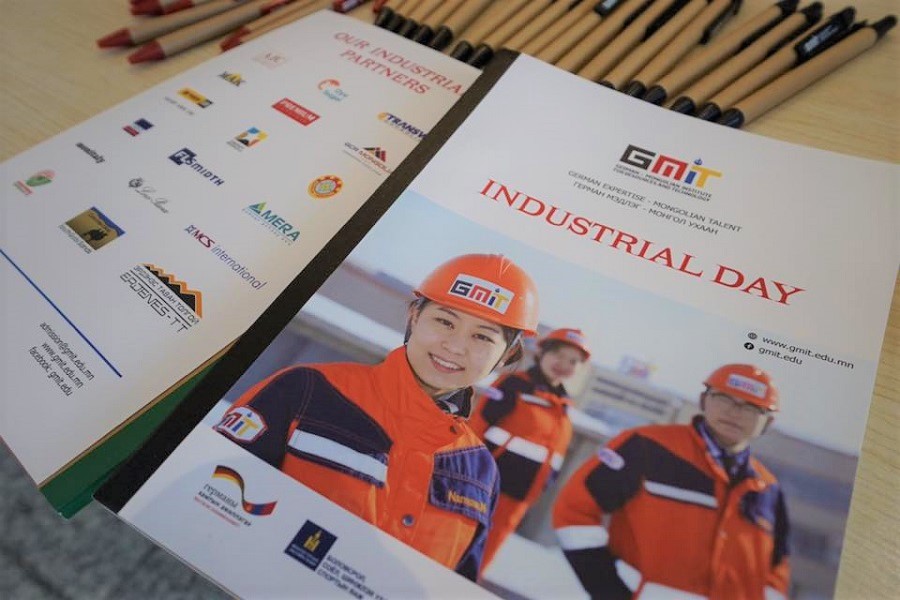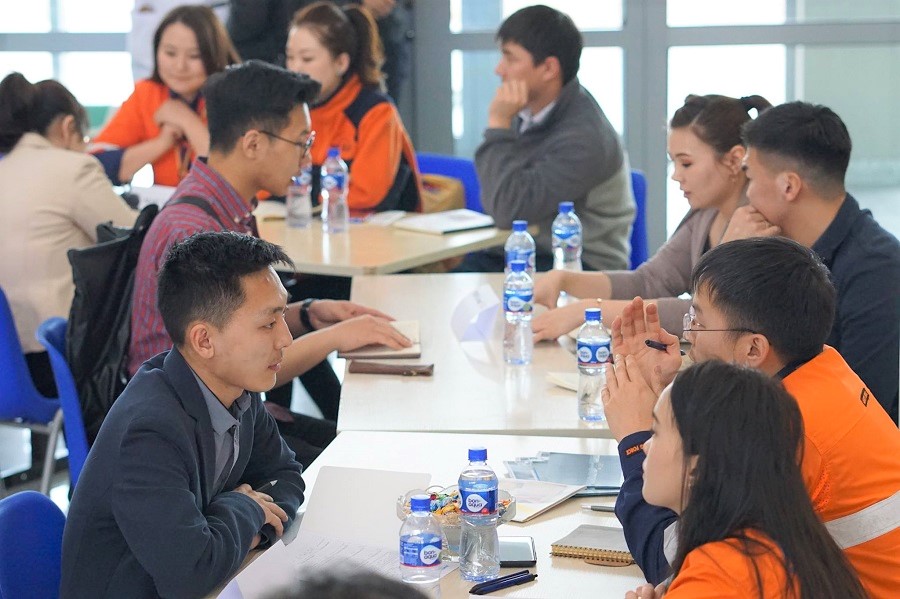Business Cooperation


The List of the Business Partners of GMIT
- MERA LLC (Since 2020)
- Khan Lab LLC (Since 2020)
- Transwest Mongolia LLC (Since 2020)
- APU JSC (Since 2020)
- Bolorsoft LLC
- CYTEC INDUSTRIES INC: A Solvay Company (Since 2020)
- Mining Technology and Equipment LLC (Since 2020)
- Aglag Khangain Uuls LLC (Since 2021)
- Hera Equipment LLC (Since 2021)
- HEITKAMP Industrial Solutions GmbH (Since 2022)
- Boroo Gold LLC (Since 2022)
- Achit Ikht LLC (Since 2022)
- MCS Holding LLC (Since 2022)
- MAK LLC (Since 2023)
- Baganuur JSC (Since 2023)
The List of the Active Non-Governmental Organization
- Mongolian National Mining Association (Since 2015)
- Central Geological Laboratory (Since 2016)
- Demnel NGO (Since 2022)
- GMIT Alumni Non-Governmental Organization (Since 2022)
- MGBC-Mongolian Green Building Council (Since 2024)
Cooperation Opportunities:
The collaboration between GMIT and industry offers a diverse range of expertise across various domains, from cutting-edge research in advanced technologies to employee training. This includes support for entrepreneurial students, pathways to higher apprenticeships, and skill enhancement for post-doctoral staff entering the business world. Additionally, efforts are made to improve enterprise skills among undergraduates and assist small companies in recognizing the value of hiring graduates. Collaboration also extends to supporting spin-out companies and aiding government agencies in attracting major opportunities.
Benefits for Mongolian society and economy:
Collaboration accelerates innovation in Mongolia, laying the groundwork for new technologies and products while cultivating a skilled workforce and creating new job opportunities. It enhances the competitiveness of Mongolian companies, attracting investments and retaining jobs within the country. This collaboration also fosters the establishment of new Mongolian companies and seeks solutions to critical challenges faced by Mongolia.
Benefits for GMIT and its students:
GMIT ensures that students receive practical experiences aligned with industry needs through study projects and internships. Students are mentored to understand future employment expectations, contributing to state-of-the-art research projects that benefit Mongolia's economy and society. Since its inception, GMIT has maintained close ties with industry, always prioritizing mutual benefits.

Our Engagement Principles:
- Respect values: Align business needs with the university's mission and strategy.
- Value transparent setting: Coordinate time frames and capacities between the university and businesses.
- Match capabilities: Utilize university skills and facilities to meet business requirements.
- Minimize bureaucracy: Streamline project workflows to meet business timelines.
- Minimize financial constraints: Offer services at a price acceptable to businesses.
- Ensure sustainability: Ensure investments have a reasonable payback period.
- Match expectations: Recognize collaboration outcomes mutually.
- Set clear lines: Define future intellectual property ownership through negotiations.
- Emphasize collaboration: Avoid conflicting views on indemnities and liabilities during partnerships.
